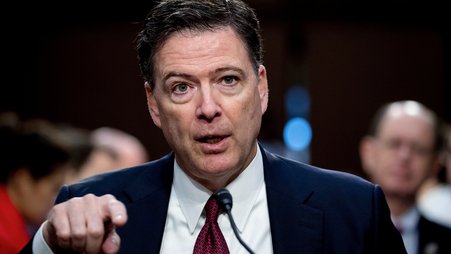Attorney General Eric Holder announced he would resign yesterday, after serving as the nation’s top law enforcement official since President Obama came into office in 2009. Holder will leave behind a complex and hotly debated legacy at the Justice Department on many issues, but one thing is clear: he was the worst Attorney General on press freedom issues in a generation, possibly since Richard Nixon’s John Mitchell pioneered the subpoenaing of reporters and attempted to censor the Pentagon Papers.
Holder presided over the largest legal crackdown on journalists’ sources in American history. Under his watch, the Justice Department prosecuted more sources and whistleblowers under the Espionage Act than all previous administrations combined, and many of those cases directly led to surveillance of reporters. In one, the Justice Department secretly subpoenaed twenty Associated Press phone lines, gathering information on over one hundred AP reporters. In another, the Justice Department accused Fox News reporter James Rosen in court documents of being a “co-conspirator” and “aiding and abetting” State Department employee Stephen Kim in violating the Espionage Act. Both moves by the Justice Department were personally approved by the Attorney General.
After a loud public backlash, the Justice Department recently tightened its media guidelines, but that hasn’t stopped them from attempting to force one of the nation’s best national security reporters, New York Times’ James Risen, into jail for refusing to testify against an alleged source. In Risen’s case, the Justice Department caused the most damage to reporter’s privilege in decades when it convinced the Fourth Circuit to do away with the privilege in its jurisdiction altogether. Shamefully, Holder’s Justice Department argued in front of the Court of Appeals that not only did Risen not qualify for reporter’s privilege, but the privilege did not exist at all, literally comparing reporters who protect sources who tell them about sensitive information to receiving drugs from a drug dealer and refusing to talk about it.
Despite all this, Eric Holder had previously promised that, “As long as I’m attorney general, no reporter who is doing his job is going to go to jail.” How the Justice Department could pursue contempt of court charges against Risen but keep him out of jail was unknown. But now the Holder is stepping down, the Justice Department is not obligated to abide by his promise.
The Justice Department’s pursuit of Risen has led to a petition signed by over 100,000 citizens, and over twenty Pulitzer Prize winners issued statements condemning it. The Justice Department has still refused to drop its pursuit.
And often forgotten in the Justice Department’s awful crackdown on the press, is its the sprawling, four-year grand jury investigation into WikiLeaks for publishing classified State and Defense Department documents in 2010 and 2011, under a “conspiracy to commit espionage” theory where WikiLeaks may or may not have asked source Chelsea Manning to send them the documents. Many have referred to it as the largest investigation of a publisher in American history.
Despite the fact that the investigation has been widely condemned by legal experts and Constitutional scholars—former Times general counsel James Goodale said Holder might as well be investigating WikiLeaks for “a conspiracy to commit journalism”—recent court documents show the grand jury is still active.
Any indictment would leave all US newspapers in the perilous position of constantly under threat of prosecution when publishing supposedly “secret” information. But even without an indictment, the open-ended investigation chills WikiLeaks’ work and anyone caught in its wide net.
In addition, the Justice Department's handling of the Freedom of Information Act (FOIA) and its aggressive tactics in court to keep basic information from journalists and the public has been deplorable, especially given Holder's promise to reform FOIA when he first came into office. Holder is also attempting to expand the controversial 'state secrets' privilege to new lengths, after promising to reform that as well.
The next attorney general, whoever it is, will have a lot of issues on his or her plate. But better respecting the rights of reporters and the First Amendment should be at the top of that list.




